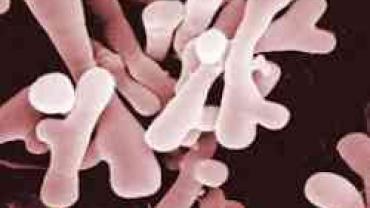
I feel blessed that the opportunity for researching studies and ideas for blog contributions provides me with such a unique and continuous educational process. It never fails that each weekly the blogging process educates me as I hope it does the eventual reader.
While I've blogged multiple times on the importance and basic physiology of the detoxification process I did not truly appreciate the significant role the beneficial bacterial critters that inhabit our gastrointestinal tract play in metabolizing and breaking down exogenously consumed toxic materials. While most of us are well aware of the importance of friendly gut flora in human health probiotics have the ability to help directly mitigate the adverse side effects associated with toxin ingestion.
BPA's prevalence in today's world
For instance BPA which stands for bisphenol A is an industrial chemical that is used to make certain plastics and epoxy resinous coatings which are often used in containers that store food and beverages such as water bottles baby bottles and cups and in the inside of metal products such as food cans baby formula cans bottle tops and water supply lines. BPA may also be found in some dental sealants and composites as well as certain thermal paper products including cash register receipts.
BPA often leeches from the product's coating or plastic into our food and water or in the case of dental sealants directly into our mouths. BPA is a known endocrine disruptor displaying powerful estrogenic properties and has been associated with various adverse effects including a variety of cancers increased risk of obesity and male and female reproductive dysfunctions.
Probiotics as a tool against toxins
In an animal study mice exposed to BPA and who were also fed with two strains of probiotics Bifidobacterium breve and Lactobacillus casei were shown to have significantly lower blood levels of BPA than those animals not fed the probiotics. The probiotics were able to bind to the toxins and facilitate their excretion from the gastrointestinal tract and out the body thus also reducing intestinal absorption. Bacteria isolated from the Korean fermented cabbage dish kimchi were also shown to have a similar effect.
Kimchi-sourced bacteria were also shown to devour and metabolize insecticides as the bacteria could very well have seen the toxic chemical as a source of much valued carbon and phosphorus.
These studies briefly underscore the importance of intestinal health and giving the proper attention and tending to our beneficial bacterial brethren as a barrier against the chronic and acute exposure most of us incur due to the current state of our environment and our food.
by Michael Fuhrman D.C.